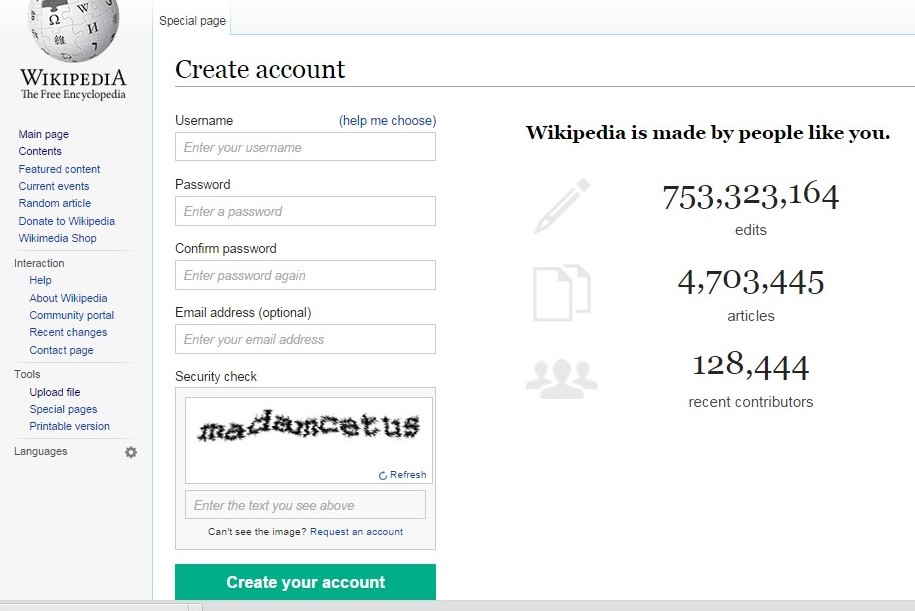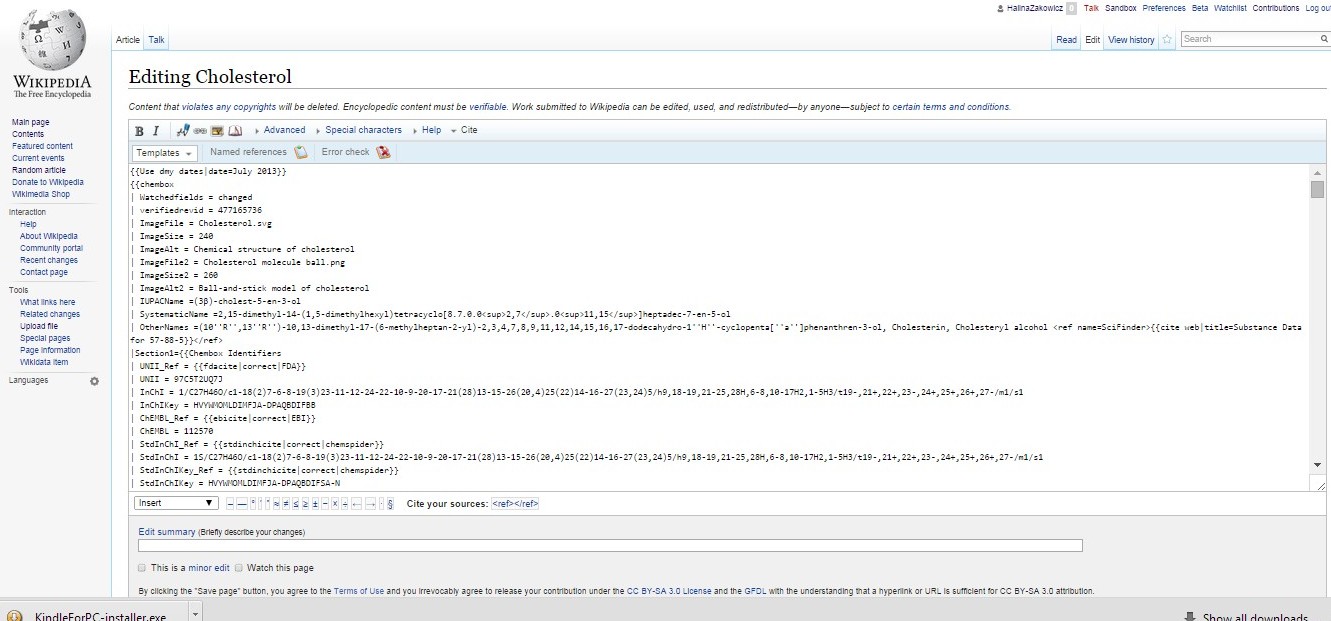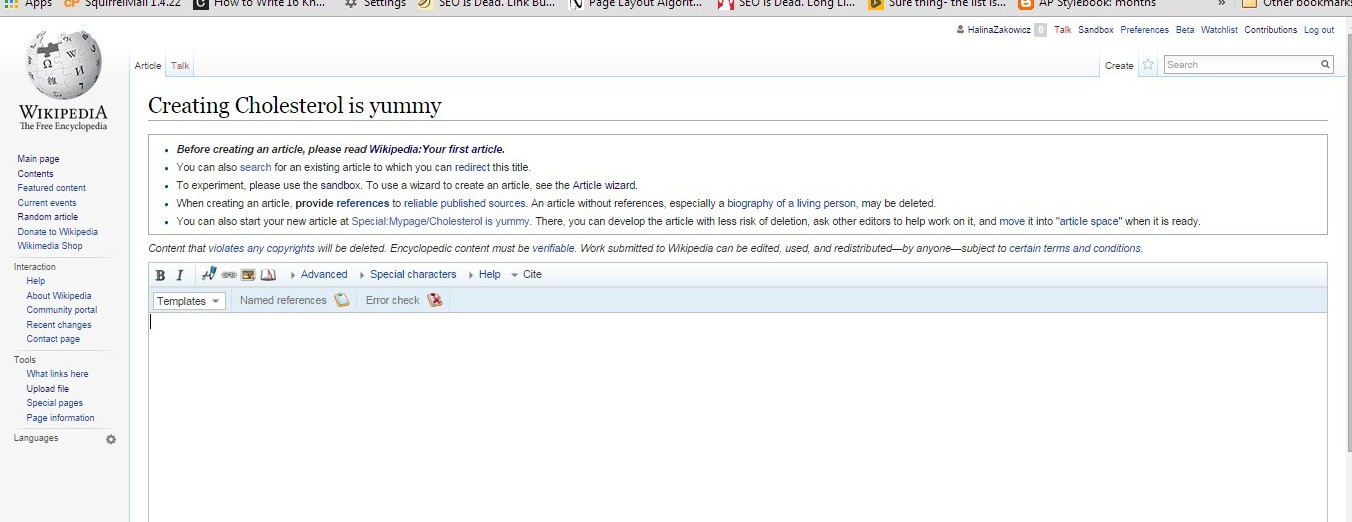In 2012, Wikipedia came up on the first page for 99% of Google searches, according to the UK-based firm Intelligent Positioning. In over half of those searches, Wikipedia came up as the first search result.
- Inbox Dollars - Get paid to check your email. $5 bonus just for signing up!
- Survey Junkie - The #1 survey site that doesn't suck. Short surveys, high payouts, simply the best.
- Nielsen - Download their app and get paid $50!
These are some amazing findings, considering that Wikipedia content pages are often Spartan in their provided information, references are iffy or lead to dead links, and much of the information is not verified by primary sources. Web researchers (and high schoolers) are advised to not use Wikipedia as a reference.
And yet, if Wikipedia is so derided, why did Google spend a lot of time and energy creating its Knowledge Graph, which greatly imitates Wikipedia in terms of features and internal links? And why does Google still give search prominence to Wikipedia even today, in 2015, when so many other authoritative and better-referenced sites exist?
5 Reasons why Google still loves Wikipedia
1. Unique, authoritative and in-depth content.
When Wikipedia entries get it right, they really get it right. Much of the content on Wiki is long, in-depth and comes with exemplary references. Furthermore, when links go dead or aren’t correct, a batch of faithful Wiki editors make sure to correct the issue. Both Wiki editors and contributors are encouraged to add references from authoritative sites, not YouTube or private blogs. Wikipedia’s constant harping on what constitutes a good reference versus a so-so one is finally paying off, and much of Wiki’s material is well-researched and referenced.
2. It’s all user-generated.
Search engines love ranking user-generated content above corporate or other types of content. This is why social media platforms, such as Facebook and Twitter, have done so well in the SERPs (search engine results pages). A community of contributors is looked upon as more relevant to a topic than a single blogger or marketer.
3. User-generated content isn’t spammy or promotional.
Wiki users that sign up to contribute to the site cannot post content that is full of spam/affiliate links, promotes a particular product or blog, or otherwise functions to openly act as linkbait for the contributor. Anyone who keeps violating this cardinal Wiki rule is eventually blocked from contributing. Thus, the content actually has value- something that Google loves.
4. Entries are keyword-focused.
Wiki entries are usually centered on one keyword, which results in a strong page and domain. This results in Google and other search engines favoring the Wiki page over a comparable website that might just use the same keyword as a meta tag or only in the page content.
5. There are bucketloads of internal links.
Wiki entries link to other Wiki entries, blanketing the entire site with their page and domain authority. Conversely, links on Wiki that lead to outside pages are nofollow, meaning that the referenced site gets no link love from being listed on Wikipedia (although it does get traffic). As a result, Wikipedia does not “leak” its superior Page Rank to outside sites.
With all these reasons why search engines like Google still favor Wikipedia, you are well advised to contribute to the Wiki. In fact, certain businesses exist solely to create Wikpedia pages for their clients.
Obviously, you can’t use Wikipedia to openly promote your affiliate website or blog, but if you generate a neutral Wiki entry around a particular product or topic, you could list your own website as a handy reference. That reference will not give you any link “juice,” so to speak, but it will result in increased traffic. You could replicate your efforts by eventually creating more Wiki pages related to your initial one and internally linking them. Keep in mind that every new Wiki page must have notability or it won’t be included.
Generating entries on Wikipedia also helps establish you as an authority in your chosen subject matter.
How to become a Wikipedia contributor
Becoming a Wiki contributor is very easy and only requires that you fill out a short form to create your account.
Your user account, once created, is your community identifier. It will display alongside any Wiki entries and/or edits you make. While you can make changes anonymously, you are better off working within your account, as this helps build your reputation on the site. Any and all Wiki activity you generate is listed on your own Contributions area. You can also practice using the site by going to an area called a sandbox.
Wikipedia recommends that you first start out as an editor before creating and publishing entire pages to the site. That seems reasonable and allows you to gain some practice with the site and how it functions. Likewise, editing other pages successfully helps increase your authority to perform restricted functions like adding images or moving pages to the public sphere.
To a large extent, Wikipedia’s content management system has a WordPress-like feel to it and includes markup language akin to html. When making edits, you should provide a brief explanation of your reason for doing so (e.g., typo). You can then click on the bottom button labeled “Show preview” to view your edit to see if it’s correct. If you are satisfied with your work, just click on the “Save page” button and you’re done.
For example, here is what the edit window of the Wiki entry on Cholesterol looks like:
When you’re ready to create a completely new Wiki entry, the Article Wizard gives you a good tutorial and helps you get started. In a nutshell, though, you need to first search on the topic you want to write about. Assuming that you find no identical or related topic, Wikipedia will invite you create an article for the topic you searched on within its search results page. At that point, you can click on the hyperlinked topic idea and get to work.
For example, here’s a search for the topic ‘Cholesterol is yummy.’ Because there’s no such topic on Wikipedia, an invitation to create one was extended through Wikipedia.
You may wish to paste in the article content from a separate document you’ve already generated or work on your article within Wikipedia. When you’re done, save your work. Afterwards, whenever you wish to return to your article and work on it some more, you’ll find it in an area marked as Creating User:YourUserAccountName/YourWikiTopic.
Be aware that your referenced sources must be reliable and unbiased. That means you can’t link to a blog or a YouTube video and call it a source. Likewise, primary sources such as research publications and direct quotes are preferred over secondary and less neutral sources such as press releases.
No joke. Here are the fastest ways to make easy money online. Click here to see how.
Once you have finished creating your article, you will need to submit it to Wikipedia for review. That process can take a few days or even weeks. Once that process is finished, your page will be moved to the public space. In some cases, Wiki editors may make some changes to your content or topic title. Or your article may be nominated for deletion. This can happen if you have included any promotional links or used images that were copyrighted to someone else.
What have been your own experiences using Wikipedia to create entries? Have you had issues with Wiki editors? Did you find the submission process to be difficult or easy? Please leave your comments below.







